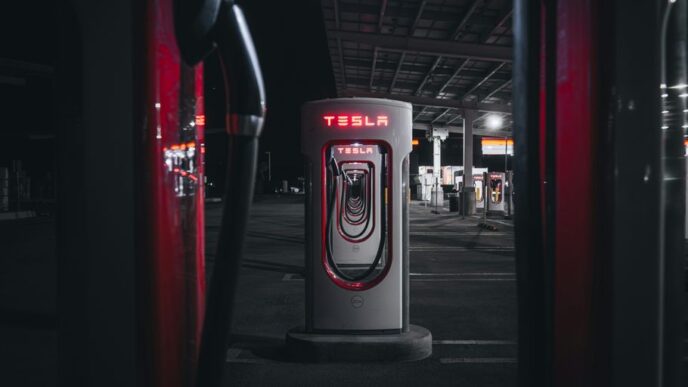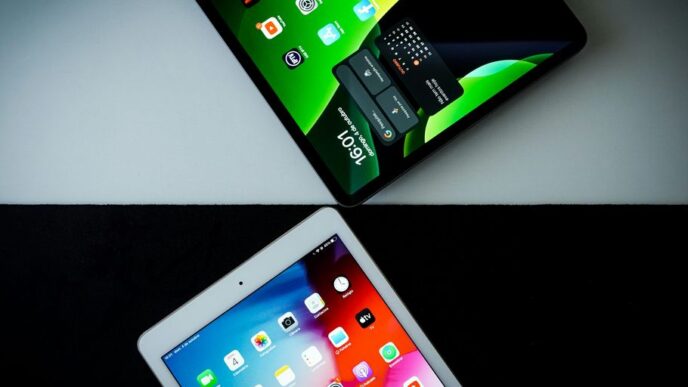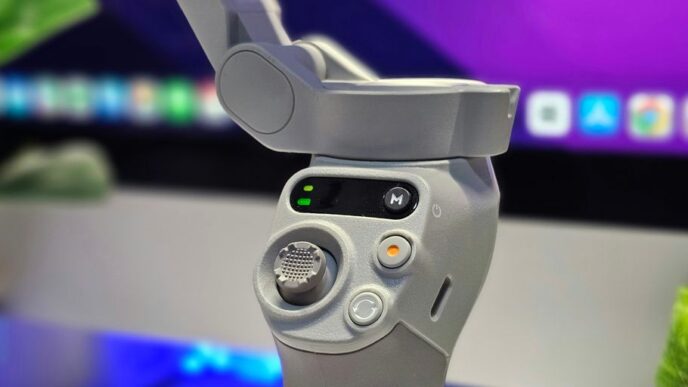In today’s digital world, protecting your online privacy is more important than ever. A Virtual Private Network (VPN) can help you keep your personal information safe while you browse the internet. This article will guide you through the best VPN options available, focusing on their privacy features, speed, security protocols, and more. Whether you want to stream shows, travel, or just browse safely, we’ve got you covered with the best VPN choices for your needs.
Understanding VPN Privacy Features
Importance of No-Logging Policies
A no-logging policy is crucial for maintaining your privacy. This means the VPN provider does not keep records of your online activities. Without logs, even if someone requests your data, there’s nothing to hand over. Here are some key points to consider:
- Look for VPNs that have been independently audited.
- Check for transparency reports that show how the VPN handles data requests.
- Ensure the VPN is based in a privacy-friendly jurisdiction.
Role of Encryption in Privacy
Encryption is like a secret code for your data. It keeps your information safe from prying eyes. Most reliable VPNs use strong encryption methods, such as:
- 256-bit encryption for OpenVPN and IKEv2 protocols.
- ChaCha20 for WireGuard protocol.
- Additional features like DNS leak protection to prevent data leaks.
Third-Party Audits and Transparency
Regular third-party audits help verify a VPN’s claims about privacy. These audits check if the VPN truly follows its no-logging policy. Here’s why they matter:
- They build trust with users.
- They can reveal any potential issues with the VPN’s privacy practices.
- Transparency reports can show how many data requests the VPN received and how they responded.
Using a VPN is a smart way to protect your online privacy, but always choose one that prioritizes transparency and security.
Top VPNs for Speed and Performance
When it comes to choosing a VPN, speed and performance are crucial. The top VPNs 2024 provide excellent speeds while keeping your data safe. Here are some top picks:
ExpressVPN: Speed and Reliability
- Known for its fast connection speeds.
- Offers a user-friendly interface.
- Unblocks various streaming services easily.
NordVPN: Balancing Speed and Security
- Provides a strong balance between speed and security features.
- Recent tests show it has one of the lowest speed losses at just 11%.
- Great for both casual browsing and heavy streaming.
Surfshark: Affordable Speed
- Offers competitive speeds at a lower price point.
- Allows unlimited device connections.
- Good for users who want value without sacrificing performance.
| VPN Provider | Average Speed Loss |
| ExpressVPN | 25% |
| Surfshark | 17% |
| NordVPN | 11% |
| Proton VPN | 21% |
| IPVanish | 44% |
| Private Internet Access | 49% |
| Mullvad | 13% |
Choosing a VPN that maintains low speed loss is essential for a smooth online experience, especially for activities like streaming and gaming.
Choosing a VPN for Streaming Services
When it comes to streaming your favorite shows and movies, not all VPNs are created equal. Some VPNs can easily bypass restrictions set by streaming services, while others may struggle. Here’s what to consider:
Unblocking Netflix and Other Platforms
- Many streaming services, like Netflix, actively block VPNs.
- A good VPN should have a proven track record of unblocking popular platforms.
- Check if the VPN offers dedicated servers for streaming.
VPNs with the Best Streaming Capabilities
| VPN Service | Unblocks Netflix | Unblocks Hulu | Unblocks Disney+ |
| ExpressVPN | Yes | Yes | Yes |
| NordVPN | Yes | Yes | Yes |
| Surfshark | Yes | Yes | Yes |
Considerations for Streaming Abroad
- Speed: Look for a VPN that offers fast connection speeds to avoid buffering.
- Server Locations: More servers in different countries mean better access to content.
- Device Compatibility: Ensure the VPN works on all your devices, including smart TVs and gaming consoles.
Choosing the right VPN can enhance your streaming experience, allowing you to enjoy content from around the world without interruptions.
Evaluating VPN Security Protocols
When choosing a VPN, understanding its security protocols is crucial. These protocols determine how your data is protected while you browse the internet. Here are some key points to consider:
Understanding VPN Encryption Standards
- Encryption Types: Look for VPNs that use strong encryption methods like 256-bit AES or ChaCha20.
- Protocol Options: Common protocols include OpenVPN, IKEv2, and WireGuard, each offering different levels of security and speed.
- Regular Updates: Ensure the VPN provider regularly updates its encryption standards to keep up with new threats.
Importance of a Kill Switch
- What is a Kill Switch? This feature disconnects your internet if the VPN connection drops, preventing data leaks.
- Why It Matters: A kill switch is essential for maintaining privacy, especially when using public Wi-Fi.
- Check Availability: Not all VPNs offer this feature, so verify its presence before subscribing.
Advanced Security Features
- Obfuscation: This makes it harder for your Internet Service Provider (ISP) to detect that you are using a VPN.
- Tor over VPN: This adds an extra layer of encryption by routing your traffic through the Tor network.
- Double VPN: This feature sends your data through two VPN servers for enhanced security.
In summary, when evaluating VPNs, prioritize those with strong encryption, a reliable kill switch, and advanced security features to ensure your online privacy is well protected.
Server Network and Global Coverage
When choosing a VPN, the number of servers and their locations are very important. A good VPN should have servers in many countries to ensure you can connect easily, no matter where you are. Here’s what to consider:
Importance of Server Locations
- A VPN with servers in over 60 countries is usually sufficient for most users.
- The best VPNs can have servers in 90 or more countries, which is great for travelers.
- Local servers provide better speeds and lower delays.
VPNs with Extensive Server Networks
| VPN Service | Number of Servers | Countries Covered |
| ExpressVPN | 3,000+ | 94 |
| NordVPN | 5,500+ | 60 |
| Surfshark | 3,200+ | 65 |
| CyberGhost | 7,000+ | 90 |
Impact on Connection Speeds
- Closer servers usually mean faster connections.
- More servers can help reduce congestion during peak times.
- Specialty servers, like those for gaming or streaming, can enhance your experience.
A wide server network not only improves speed but also gives you more options for accessing content from different regions.
Cost and Value of VPN Services
When it comes to choosing a VPN, understanding the cost and value is essential. Most VPNs offer various subscription plans, including monthly, yearly, and multi-year options. Here’s a breakdown of what to consider:
Comparing Subscription Plans
- Monthly Plans: Typically range from $10 to $14.
- Yearly Plans: Usually cost between $40 and $60.
- Multi-Year Plans: Can offer the best savings, often around $50 to $80 for two years.
| Plan Type | Average Cost |
| Monthly | $10 – $14 |
| Yearly | $40 – $60 |
| Multi-Year | $50 – $80 |
Free vs. Paid VPNs
- Free VPNs: Often come with limitations and may not provide adequate privacy. Proton is an exception, being a reliable free option.
- Paid VPNs: Generally offer better security, speed, and features. They are recommended for serious users.
Long-Term Value Considerations
- Price Increases: Be aware that some VPNs may raise prices after the first year.
- Seasonal Discounts: Look for deals during events like Black Friday to save money.
- Budgeting: Set a budget and find a VPN that meets your needs without breaking the bank.
Choosing the right VPN is not just about the price; it’s also about the features and privacy protections that come with it. Always read the fine print before committing.
VPNs for Specific Needs
Best VPNs for Privacy-Conscious Users
When it comes to privacy, choosing the best VPNs is crucial. Here are some top options:
- ExpressVPN: Known for its strong security features and no-logging policy.
- NordVPN: Offers advanced security options and is based outside of the Five Eyes countries.
- ProtonVPN: Focuses on privacy and has a free version with limited features.
VPNs for Frequent Travelers
Traveling can expose you to various online threats. Consider these VPNs:
- Surfshark: Allows unlimited devices and has a large server network.
- CyberGhost: Great for unblocking content in different countries.
- Private Internet Access (PIA): Offers a wide range of server locations.
VPNs for Multi-Device Households
If you have multiple devices, look for a VPN that supports many connections:
- Surfshark: Unlimited connections on all devices.
- NordVPN: Allows up to 6 simultaneous connections.
- ExpressVPN: Supports 5 devices at once.
Choosing a VPN that fits your specific needs can enhance your online experience and security.
Final Thoughts on Choosing the Right VPN
In conclusion, finding the best VPN for your privacy needs is essential in today’s digital world. A good VPN not only keeps your online activities private but also helps you access content from anywhere. When choosing a VPN, look for one that offers strong security features, a no-logs policy, and fast connection speeds. It’s also important to consider the number of servers and locations available. Remember, the right VPN can make a big difference in how safe and free you feel online. Take your time to research and pick a service that fits your needs.
Frequently Asked Questions
What is a VPN and why do I need one?
A VPN, or Virtual Private Network, helps keep your online activities private. It hides your IP address and encrypts your internet connection, making it harder for others to see what you’re doing online.
Are free VPNs safe to use?
While some free VPNs can be safe, many have limitations or may sell your data. It’s usually better to choose a paid VPN for better security and privacy.
Can I use a VPN on my phone and tablet?
Yes! Most VPN services offer apps for both Android and iOS devices, so you can protect your browsing on your phone and tablet.
Will a VPN slow down my internet speed?
Using a VPN can sometimes slow down your internet because it routes your connection through a secure server. However, many top VPNs are designed to minimize speed loss.
Is it legal to use a VPN?
In most places, using a VPN is legal. However, some countries have restrictions on VPN use, so it’s important to check local laws.
What features should I look for in a VPN?
Look for a VPN with strong encryption, a no-logs policy, a kill switch, and good customer support. It’s also helpful to choose one that has servers in many countries.












